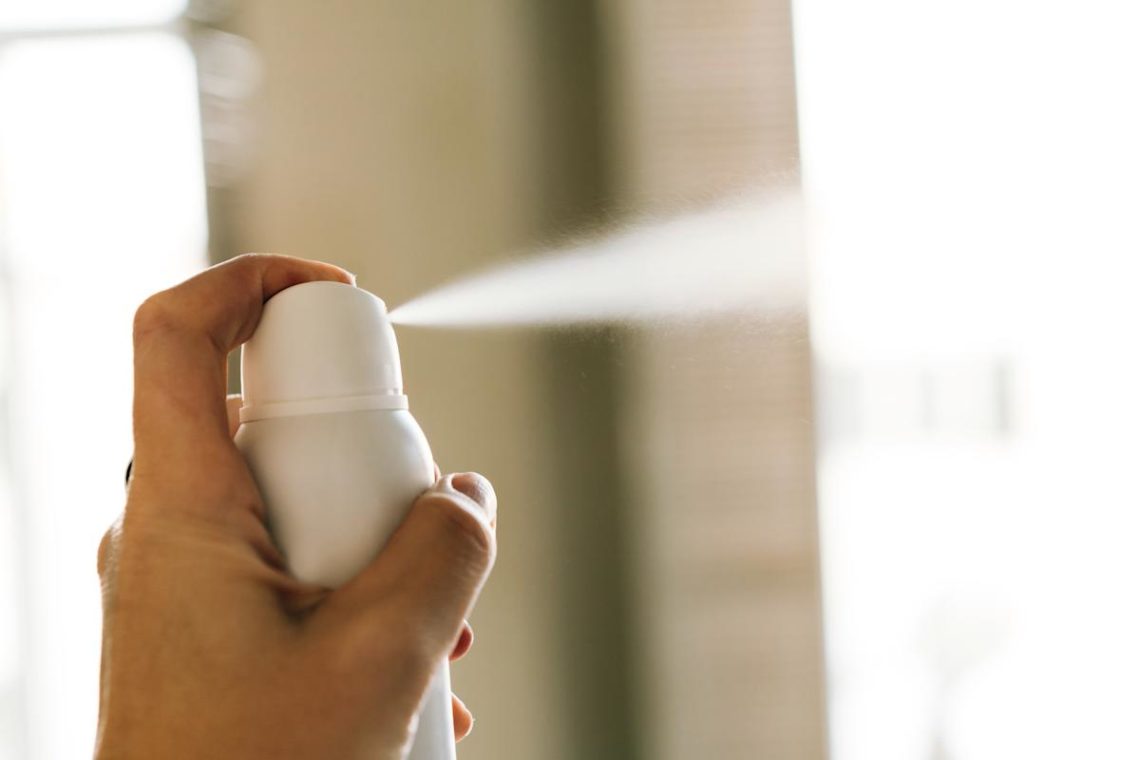Temperatures are finally warming up, and deodorant is again a nonnegotiable before leaving the house. But while people typically use deodorant just under their arms to ward off odors, brands are pushing whole-body versions intended to be used “from pits to bits.”
In 2024, Secret launched its line of whole-body deodorants along with a commercial showing a woman spraying the product underneath her sports bra and even down her pants. Big-name brands like Dove, Old Spice, Native and SheaMoisture have also followed the trend.
According to a statement from Unilever, the parent company to Dove, Dove Men+Care and SheaMoisture brands, its production of whole-body deodorants was influenced by consumer demand and executed with the guidance of experts.
“Many consumers were taking their existing deodorants and antiperspirants and using them not quite as per pack directions. We learned that people were applying them to their chests, backs, private parts, and places where the skin folds or touches,” said Unilever’s associate R&D director, Diane Keenan. “The problem is that typical deodorants aren’t designed for areas other than underarms.”
These brands aren’t the first to tackle all-over sweat and smells. Ob-gyn-founded Lume Whole Body Deodorant pioneered the movement in 2017. Even still, some experts are expressing their concerns about whether whole-body deodorants are necessary — or even safe to use on sensitive areas. Here’s what to know.
How big a deal is body odor?
It is “completely normal” to have body odor, according to dermatologist Dr. Elizabeth Houshmand.
“Body odor comes from the bacteria that live on sweaty parts of your body, like your armpits, groin and feet,” Houshmand tells Yahoo Life. “When you sweat, these bacteria break down certain proteins in your sweat into acids, causing an odor. You’re more likely to have body odor when your sweat comes from apocrine glands, which release sweat from hair follicles found in the armpits, groin and pubic area.”
While underarm odor is most widely talked about, dermatologist Dr. Marianna Blyumin-Karasik says, strong aromas exist in other areas of the body for a number of reasons, including personal hygiene and grooming practices as well as sweating. “Genital areas are generally more moist environments due to an increase in sweat apocrine glands,” she tells Yahoo Life. “Friction in skin-to-skin-fold areas makes the skin barrier in these areas more vulnerable, leading to microbe imbalance and overgrowth.”
According to Secret, its research shows that women are concerned about having whole-body odor. “The fear of odor breakthroughs is an extra source of stress in women’s daily lives,” a press release read. “Women resort to taking multiple showers a day, layering clothes, applying powder, using sprays or perfumes and often avoid being close to others.” However, many of these practices could be particularly harmful to the genital area, experts say.
Why using fragranced products in sensitive areas is harmful
Experts don’t recommend using deodorizing products in or around private areas. Dr. Jennifer Lincoln, an ob-gyn focused on demystifying taboo women’s health topics, tells Yahoo Life that “the vast majority of ob-gyns would not want you to ever use these products on your vulva.”
Products like these can also add to a sense of shame. “All they’re really doing is internalizing shame by saying we ‘stink’ everywhere, including ‘down there’ via euphemisms and never actually saying the word vulva,” says Lincoln. “They don’t even clarify that it should not be used in the vagina.”
Lincoln explains that’s because vulvar skin is delicate, and ingredients that contain fragrance can be harmful. “It can cause skin irritation, alter the pH and if used internally or near the vaginal opening, can cause an imbalance in the vaginal microbiome, which can make people more susceptible to infections,” she explains.
These infections could also produce an odor, creating a vicious cycle. Instead, it’s important to address the source of the original odor rather than covering it up with fragrance. “It would be a great idea to rule out an infection like bacterial vaginosis or a sexually transmitted infection before spraying something on that could delay treatment and potentially make things much worse if you have an allergic reaction to it,” she says.
Lincoln adds: “The reality is if you have an odor that concerns you, reaching for these deodorants shouldn’t be the answer.” Instead, consult your physician.
What about the rest of the body?
When it comes to using deodorant for underneath breasts, between thighs or on feet, experts say that it’s likely safe. “If skin is intact and you do not have a history of sensitivity, these products can be used on body parts other than the armpits without an issue,” Dr. Joshua Zeichner, director of cosmetic and clinical research at Mount Sinai Hospital’s department of dermatology, tells Yahoo Life.
Houshmand, however, says that using whole-body deodorants in these areas is likely unnecessary “unless you have a significant issue or a medical need to do so.” The condition bromhidrosis, for example, can cause a “very foul-smelling perspiration and odor” that a deodorant might be able to neutralize.
For most people, regular use of soap and water is enough. “If you suffer from a significant odor not controlled by an over-the-counter deodorant, or if you have excessive sweating, make sure to visit a board-certified dermatologist for evaluation for a prescription solution,” says Zeichner.
Main takeaway
If you’re looking to use a whole-body deodorant for your feet or underneath sweaty breasts, Lincoln says, “Be my guest. But keep it away from your vulva.”
Even then, it’s important to take a look at ingredients before using a deodorant anywhere on your body. “I would recommend looking for sodium bicarbonate, mandelic acid, tea tree oil, peppermint oil [or] eucalyptus oil, and stay away from fragrances and parabens,” says Houshmand. “The ingredients found in some whole-body deodorants may cause irritation to people with sensitive skin, and it can also be dangerous to apply too much of the product at once, depending on the ingredients.”
And in case you’re unsure, Houshmand says, “always do a swatch test on the back of your wrist to make sure you don’t have a reaction to the product.”
The post Whole-body deodorant tackles sweat and smells ‘from pits to bits.’ Is it safe? appeared first on Yahoo Life.




